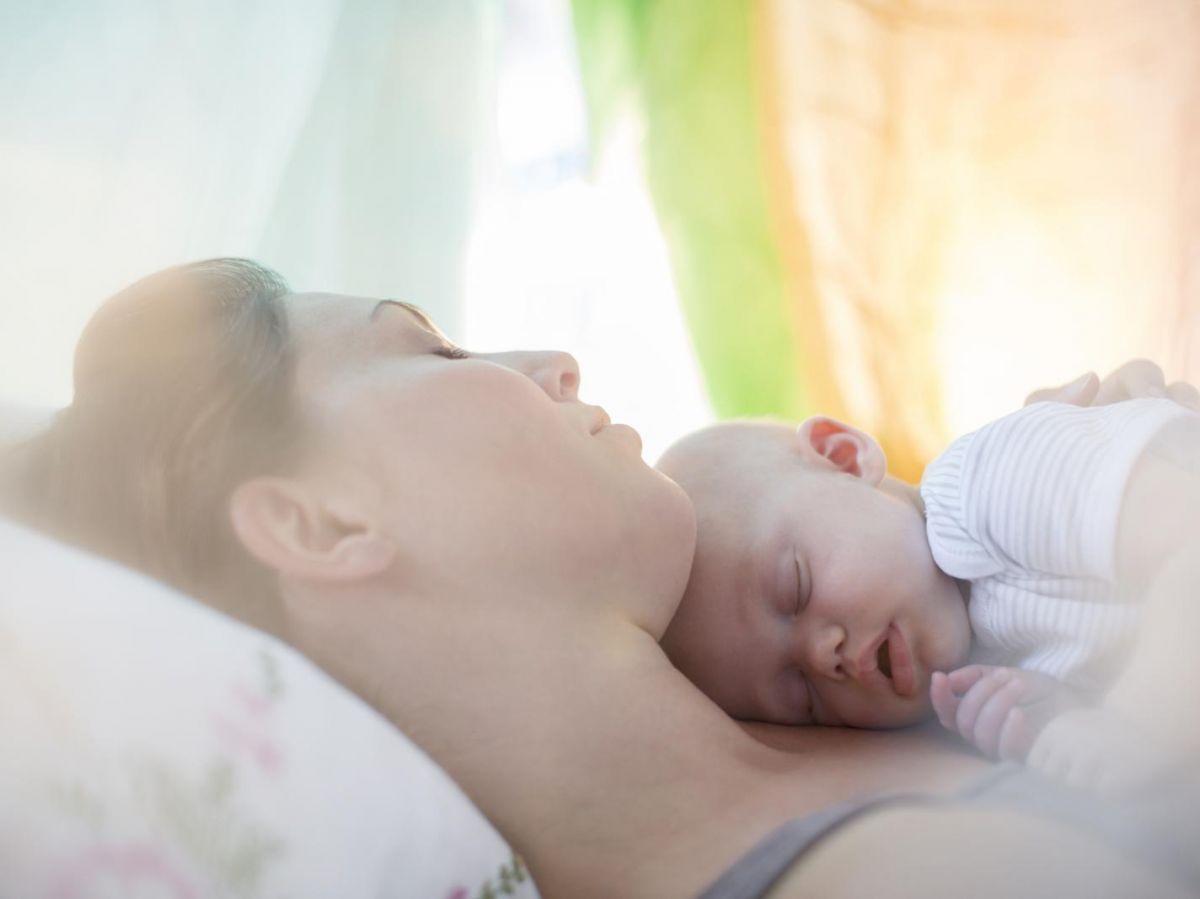The birth of a child is a happy event… but tiring, especially for the mother. Already the pregnancy is not necessarily a pleasure (which can cause, for example, insomnia), without forgetting the great bodily stress that it represents childbirthAnd once the child is born, it's not at all a return to normality. On the contrary, the arrival of this new family member turns everything upside down, especially the parents' sleep.
Even though newborns sleep a lot, they also wake up a lot, disrupting the nighttime rest of those who have to take care of them. This is particularly the case for mothers, who sleep less during the first weeks of their child's life, causing a lack of sleep that leads to fatigue and mood swings, and which can contribute to the famous " baby blues"But even when their sleep time returns to normal, their rest remains disrupted for months, according to a study from Washington State University in the United States, presented during the annual meeting of the American Academy of Sleep Medicine and the Sleep Research Society, and published on May 19, 2025 in the journal Sleep.
Very disturbed sleep during the first week
Using connected bracelets, the researchers analyzed the sleep of 41 new mothers, aged between 26 and 43, during the 13 weeks following childbirth, as well as during the year preceding the birth of their baby (to compare each mother's sleep before and after childbirth).
Unsurprisingly, the first week after this event was when mothers slept the least: about 4.5 hours, compared to nearly 8 hours (7.7 hours) before giving birth (knowing that sleep can already be somewhat disrupted during pregnancy). And not only did they sleep less, but their sleep was also more interrupted. The researchers measured periods of uninterrupted sleep each night: the longest could reach about 5.5 hours before birth, compared to only 2.2 hours during this first week postpartum. And about a third of the mothers went at least one 24-hour period straight without sleeping. This shows how little sleep mothers get right after giving birth.
Sleep remains very interrupted for at least three months
Then, total sleep time gradually increases after this first week. Thus, during the following seven weeks, they sleep approximately 6.7 hours per day, only one hour less than before giving birth (7.7 hours). But despite this improvement, their sleep remains very disturbed: the longest period of uninterrupted sleep was on average 3.2 hours, not far from the 2.2 hours of the first week and well below the 5.5 hours before birth.
During the third month after giving birth, their sleep approaches the "normal" of that during pregnancy: they now sleep about 7.3 hours, not far from the total time they slept before giving birth. But their sleep remains disturbed, and the longest uninterrupted period is about 4.1 hours, still more than an hour less than before giving birth. That is to say, even if the total time of sleep increases, it remains less restorative because of the more frequent interruptions, and this lasts for at least three months. This fundamentally changes our knowledge about postpartum sleep: the biggest challenge for new mothers is not total sleep deprivation, but uninterrupted sleep deprivation., concludes in a press release Teresa Lillis, author of the study. Our findings validate new mothers' accounts of fatigue and point to a potential new avenue for intervention to improve their sleep. Rather than encouraging them to nap during their baby's naps, they would benefit more from strategies that allow them to sleep uninterrupted.. »


